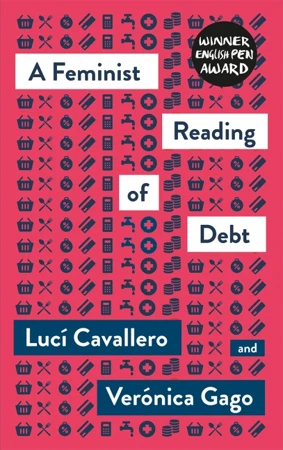A Feminist Reading of Debt

Blurb
In this sharp intervention, authors Lucí Cavallero and Verónica Gago defiantly develop a feminist understanding of debt, showing its impact on women and members of the LGBTQ+ community and examining the relationship between debt and social reproduction. Exploring the link between financial activity and the rise of conservative forces in Latin America, the book demonstrates that debt is intimately linked to gendered violence and patriarchal notions of the family. Yet, rather than seeing these forces as insurmountable, the authors also show ways in which debt can be resisted, drawing on concrete experiences and practices from Latin America and around the world. Featuring interviews with women in Argentina and Brazil, the book reveals the real-life impact of debt and how it falls mainly on the shoulders of women, from the household to the wider effects of national debt and austerity. However, through discussions around experiences of work, prisons, domestic labour, agriculture, family, abortion and housing, a narrative of resistance emerges.Translated by Liz Mason-Deese. ***Winner of an English PEN Award 2021***Comment from our editors:
Originally written in Spanish in 2019 (Una lectura Feminista de la Deuda), this book presents a new perspective on the social burden of debt and the resistance to it and develops a feminist analysis of finance. They argue that the growth of the feminist movement in Latin America has politicized issues that were previously thought as affecting only a minority or were only something that experts could understand and comment upon, including private debt. Gago and Cavallero connect domestic violence to gender-based violence and labor violence, between racist violence and institutional violence, between the violence of the legal system and economic and financial violence. They argue that debt ties us to a future of violent relations from which we want to flee. They analyze how debt “extracts value from certain forms of life and how it intervenes in processes of production and reproduction of life.” They also identify the different ways in which debt can be exploitative for different groups of people, specifically, in terms of their gender and sexual orientation. Gago and Cavallero take “debt out of the closet” as a political move against the abstraction exercised by the domination of finance and the targeting of feminized bodies as good borrowers. It presents a new and compelling narrative about private household debt and an understanding of feminist challenges to finance.
By Diversifying and Decolonizing Economics

